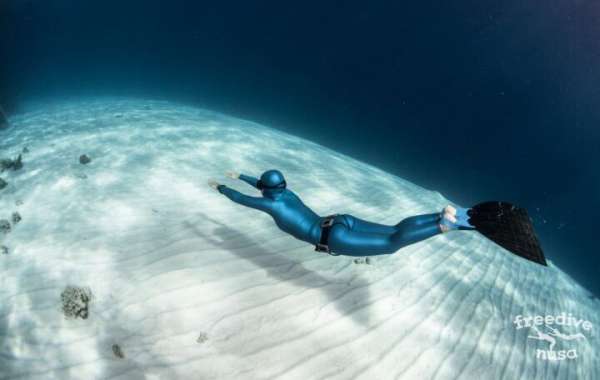Freediving in Indonesia: Exploring the Depths of a Marine Wonderland
Indonesia, an archipelago made up of over 17,000 islands, is a paradise for ocean lovers. Among its many attractions, freediving stands out as a unique way to experience the country’s underwater beauty. With pristine waters, abundant marine life, and diverse underwater landscapes, Indonesia is one of the top destinations for freediving enthusiasts from around the world.
Why Freediving in Indonesia?
Indonesia is part of the Coral Triangle, known as the most biologically diverse marine region on the planet. This makes it a dream come true for freedivers who want to explore thriving coral reefs, encounter a variety of fish species, and even swim alongside larger creatures like manta rays and sea turtles.
Whether you’re a beginner or a seasoned freediver, Indonesia offers an array of locations, each with its own unique underwater environment. From shallow coral gardens to deep drop-offs, there’s something for everyone. The warm tropical waters and excellent visibility make the experience even more magical, allowing divers to fully immerse themselves in the ocean’s tranquility.
Top Freediving Destinations in Indonesia
Bali: Known as the "Island of the Gods," Bali is also a hub for freedivers. Tulamben, with its famous USAT Liberty wreck, offers a spectacular freediving site. The shallow wreck is accessible to all skill levels and surrounded by vibrant coral reefs teeming with marine life. Amed, another popular spot, offers stunning coral walls and a laid-back vibe, making it perfect for those who want a relaxing freediving experience.
Komodo National Park: Komodo is famous not just for its dragons but also for its incredible marine biodiversity. Freediving here offers encounters with manta rays, sharks, and colorful coral reefs. The strong currents in the area add a sense of adventure, especially for experienced freedivers looking to challenge themselves.
Raja Ampat: Located in West Papua, Raja Ampat is often called one of the best diving destinations in the world. Freediving here feels like swimming through an underwater dream. The area is home to hundreds of fish species, coral reefs, and dramatic underwater landscapes, including pinnacles and overhangs. The sheer variety of marine life makes every dive a new and exciting experience.
Lombok and the Gili Islands: Just a short trip from Bali, Lombok and the nearby Gili Islands offer freediving spots that are perfect for beginners and advanced divers alike. The Gilis are known for their laid-back atmosphere, crystal-clear waters, and easy access to dive sites, making them an ideal location for learning or refining your freediving skills.
Freediving: A Journey into the Deep
Freediving https://freediving-indonesia.com/ is more than just a sport; it’s a personal journey. In Indonesia, the serene underwater world is the perfect place to disconnect from everyday stress and connect with nature. The stillness of the ocean, the rhythm of your breath, and the feeling of weightlessness all contribute to a meditative experience. Unlike scuba diving, freediving allows you to move freely and quietly, creating a sense of harmony with the sea and its inhabitants.
The sensation of holding your breath and descending into the depths with nothing but your own body is both calming and exhilarating. In Indonesia’s warm, clear waters, the visibility and biodiversity make each dive a feast for the senses. You might glide through a school of colorful fish, hover over a coral garden, or find yourself face-to-face with a majestic manta ray.
Is Freediving in Indonesia Suitable for Beginners?
Absolutely! Indonesia is home to several world-class freediving schools that offer courses for all levels. Beginners can learn essential skills like breath control, equalization, and safe diving techniques. Many schools are based in Bali, Gili Trawangan, and Amed, where the conditions are ideal for learning, with calm waters and accessible dive sites.
For those with more experience, Indonesia offers a playground of deeper sites and stronger currents, perfect for pushing your freediving limits. Whether you’re aiming for depth or exploring underwater caves and wrecks, Indonesia provides ample opportunity to improve your skills in a stunning environment.
The Freediving Community in Indonesia
One of the great things about freediving in Indonesia is the sense of community. Freedivers often gather in places like Amed, the Gili Islands, or Komodo to share their love for the ocean. The freediving culture in Indonesia is all about mutual respect for the environment and for each other. You’ll often find divers participating in conservation efforts, such as coral reef restoration or beach clean-ups, highlighting the deep connection between freediving and the natural world.
Conservation and Responsible Freediving
With the beauty of Indonesia’s marine life comes the responsibility to protect it. The country’s rich ecosystems are vulnerable to threats like overfishing, pollution, and coral bleaching. Freedivers, who often develop a deep respect for the ocean through their experiences, are in a unique position to advocate for the protection of these environments.
Many freediving schools and local organizations promote sustainable tourism and environmental awareness. Freedivers are encouraged to follow responsible diving practices, such as not touching marine life, avoiding harmful sunscreens, and supporting eco-friendly operations.
Conclusion: Dive into the Heart of Indonesia
Freediving in Indonesia is an unforgettable adventure. The combination of stunning underwater landscapes, vibrant marine life, and the opportunity to connect deeply with nature makes it a must-visit destination for anyone passionate about the ocean. Whether you’re exploring Bali’s wrecks, gliding alongside manta rays in Komodo, or marveling at Raja Ampat’s coral gardens, Indonesia offers a freediving experience that will leave you breathless—in the best possible way.
So, if you’re ready to embrace the freedom of the ocean, dive into Indonesia’s waters and discover a world of beauty beneath the surface.




